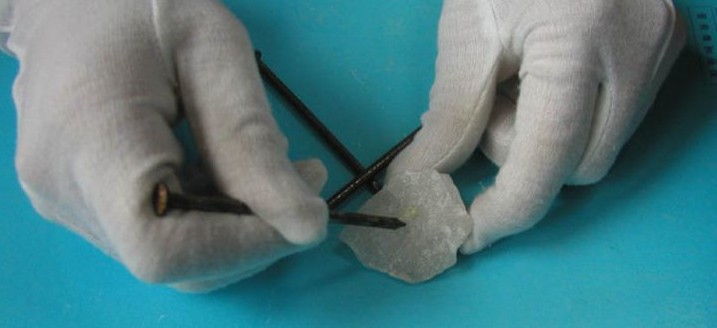The hardness or resistance to scratching of stone is generally rated on the Mohs scale. The Mohs scale ranks stones for their ability to scratch and others. Only diamond is capable of scratching all the other materials and is rated 10 on the scale of Mohs. You can evaluate the hardness of your floor by scratching with a piece of copper (hardness < 3), a knife (hardness < 5) and a lime (hardness < 6).
The hardness of marble and granite is also often linked to its color. The hardest marbles are beige and red. The softest marbles are brown and black. The softer the floor, the more it will require regular maintenance.
The hardness of ceramic tiles and synthetic floors depend on the fabrication temperatures of the tiles and is also inversely proportional to their porosity. The harder the stone, the less porous it will be. The hardness of ceramic tiles can often be evaluated when controlling the level of porosity.

The hardness or resistance to scratching of stone is generally rated on the Mohs scale. The Mohs scale ranks stones for their ability to scratch and others. Only diamond is capable of scratching all the other materials and is rated 10 on the scale of Mohs. You can evaluate the hardness of your floor by scratching with a piece of copper (hardness < 3), a knife (hardness < 5) and a lime (hardness < 6).
